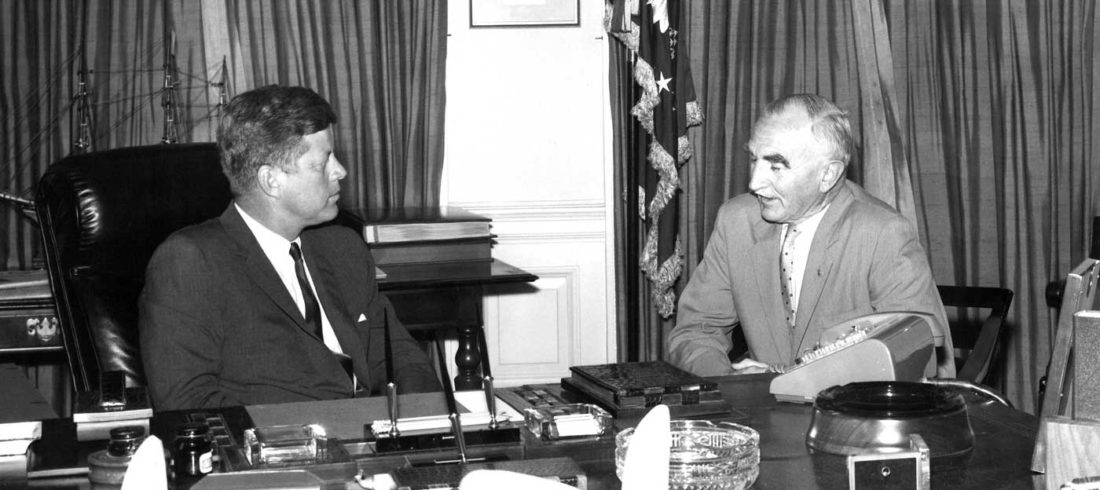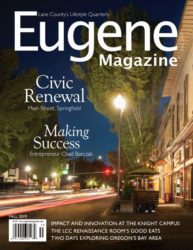Wayne and Mildred Morse arrived in Eugene in 1929, when Morse took a position as an assistant professor at the University of Oregon’s law school. The couple immediately dove into Eugene’s social scene. Morse accepted speaking opportunities whenever and wherever they were offered, and within two years he was elevated to the post of law school dean, making him the youngest dean of any accredited law school in the nation. Around that time, the Morses bought the property on Crest Drive that is known today as the Wayne Morse Family Farm and Park.
Through the 1930s, Morse distinguished himself not only as a fine public speaker and educator but also as a researcher whose work contributed to several states changing their approach to criminal law. His successes were noted by the federal government, and Morse was asked to serve as an arbitrator in labor disputes at ports and harbors up and down the West Coast. When World War II started, he was called upon to use his negotiating skills and knowledge of labor law to keep factories open and productive.
All these experiences combined to make Morse a winning candidate for the United States Senate in 1944. Over the next 24 years he served Oregon first as a liberal Republican, then as an independent, and finally as a Democrat. So able was he at debating and tenaciously holding onto his principled positions that he became known as “the Tiger of the Senate.”

It was a high-pressure life, and Morse found renewal in the companionship of horses. He became an expert rider, winning prizes at local competitions for his horsemanship.
“I hold to the proposition that an enlightened citizenry is democracy’s greatest strength and our nation’s greatest potential wealth.” — Wayne Morse
Morse’s love for his horses was so great that upon being elected to the Senate, he took a pair with him to Washington. Throughout his Senate career he displayed in his office a bronze horse on his desk and a silver one on the mantle behind his chair.
“This man is nobody’s fool,” the Saturday Evening Post’s Margaret Thompson wrote in 1945, quoting a reporter who’d interviewed Morse. “He has an exceptionally quick mind and is a very good talker. Trouble is, all he wants to talk about is horses.”
Despite this equine love, there were some rough patches, including a number of spills and some broken bones. The most serious mishap took place in 1951, when Morse was attending a horse show and was kicked in the face by a startled mare, breaking his jaw. He was kicked again in 1959 and again in 1966. In the heat of political battle, his opponents used the first kicking incident to poke fun at the senator, claiming that perhaps the mare had “rattled his cranium.”
Later, Morse’s outspoken opposition to the Vietnam War cost him much political capital, and in 1968 he lost his bid for a fifth term in the Senate by just more than 3,000 votes. However, he never really retired. He hoped to be elected again in 1974 and earned the Democratic Party’s nomination to return to the Senate, but that summer he fell ill and died of kidney failure.
After his death, his family donated the 27.5-acre farm to the city of Eugene. Today, it is a park with picnic facilities for up to 125 people, a dog play area, and a hiking trail. The Colonial Revival–style house can accommodate up to 30 people for events.
What was once a private oasis where a tired man could relax with his horses is now open to all. The Wayne Morse Family Farm memorializes this accomplished public servant by continuing to serve the community.

